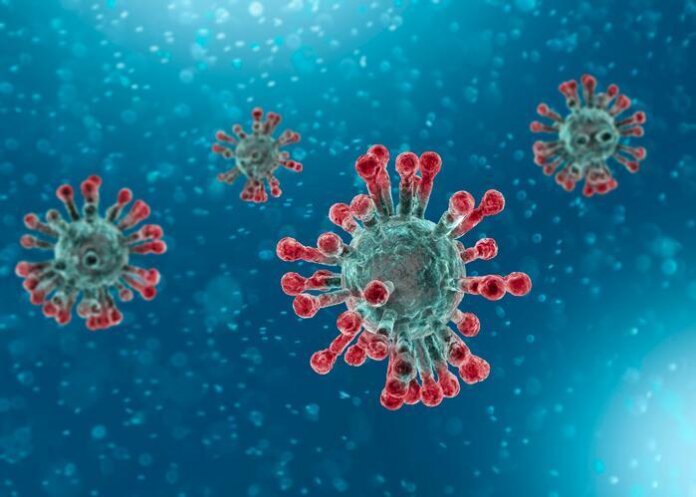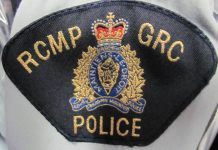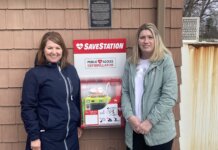HALIFAX: The province is reporting two deaths related to COVID-19. Two men, both in their 60s, have died in Central Zone on June 2. Nova Scotia is also reporting 17 new cases of COVID-19 and 72 recoveries.
There are 12 new cases in Central Zone. Eight of the cases are close contacts of previously reported cases, two are related to travel and two are under investigation.
Three cases are in Eastern Zone and are close contacts of previously reported cases.
One case is in Northern Zone and is related to travel.
One case is in Western Zone and is currently under investigation.
There is limited community spread in Central Zone. Eastern, Northern and Western Zones continue to be closely monitored for community spread.
The province has confirmed its first case of a rare blood clotting condition known as vaccine-induced immune thrombotic thrombocytopenia (VITT).
The person is a man in his 40s who received his first dose of the AstraZeneca COVID-19 vaccine in early May. He developed symptoms about two weeks after vaccination. He received treatment and is recovering.
“I am relieved to hear that the man who experienced a rare blood clotting event following his vaccination has received treatment and is now recovering,” said Premier Iain Rankin. “I want to remind Nova Scotians that events like this are rare. Nova Scotians who received the AstraZeneca vaccine should feel confident in their decision and can choose between the AstraZeneca, Pfizer or Moderna vaccine for their second dose.”
As of today, Nova Scotia has 311 active cases of COVID-19. There are 38 people in hospital, including 15 in ICU. The median age of people hospitalized in the third wave is 53 for non-ICU, and 55 for people in ICU.
On June 1, Nova Scotia Health Authority’s labs completed 4,254 tests.
As of June 1, 594,708 doses of COVID-19 vaccine have been administered. Of those, 43,776 Nova Scotians have received their second dose.
“All COVID-19 vaccines approved for use in Canada protect against severe illness or death from the virus, but we know there is a risk of developing a rare blood clotting condition for some people with the AstraZeneca vaccine,” said Dr. Robert Strang, Nova Scotia’s chief medical officer of health. “We have a process in place to monitor and report adverse events related to vaccinations in the province. Anyone who experiences an adverse event as a result of vaccination should report it to their health-care provider or seek immediate medical attention if it is an emergency.”
Since April 1, there have been 3,853 positive COVID-19 cases and 21 deaths. Cases range in age from under 10 to over 90. There are 3,521 resolved cases. Cumulative cases may change as data is updated in Panorama.
Testing advice:
Nova Scotians with or without symptoms can book a test at https://covid-self-assessment.novascotia.ca/en for primary assessment centres across the province. Those with no symptoms are strongly encouraged to use pop-up sites if they want to be tested.
More information on testing can be found at https://www.nshealth.ca/coronavirustesting
Anyone with COVID-19 symptoms is advised to self-isolate and book a COVID-19 test. Everyone they live with must also self-isolate until the person receives their first negative test result. If the test is positive, public health will advise everyone about what to do.
Anyone advised by public health that they were a close contact needs to complete a full 14-day quarantine, regardless of test results. If the close contact is symptomatic, everyone they live with must also self-isolate until the person receives their first negative test result. If the test is positive, public health will advise everyone about what to do.
Symptoms and self-assessment:
Nova Scotians should visit https://covid-self-assessment.novascotia.ca/ to do a self-assessment if in the past 48 hours they have had or are currently experiencing mild symptoms, including:
— fever (i.e. chills/sweats) or cough (new or worsening)
— sore throat
— runny nose/nasal congestion
— headache
— shortness of breath/difficulty breathing
People should call 811 if they cannot access the online self-assessment or wish to speak with a nurse about their symptoms.
Anyone with symptoms should immediately self-isolate and book a test.
Quick Facts:
— a state of emergency was declared under the Emergency Management Act on March 22, 2020, and extended to June 13, 2021
Additional Resources:
More information on COVID-19 case data, testing and vaccines is available at: https://novascotia.ca/coronavirus/data/
Nova Scotians can find accurate, up-to-date information, handwashing posters and fact sheets at: https://novascotia.ca/coronavirus
Nova’s Scotia’s five-phase reopening plan, announced May 28, 2021: https://novascotia.ca/coronavirus/docs/reopening-safely-with-COVID-19-plan-overview.pdf
Businesses and other organizations can find information to help them safely reopen and operate at: https://novascotia.ca/reopening-nova-scotia
More information about public health text notifications of positive COVID-19 cases and close contacts is available here: https://www.nshealth.ca/news/public-health-begins-contacting-positive-covid-19-cases-close-contacts-text-message























